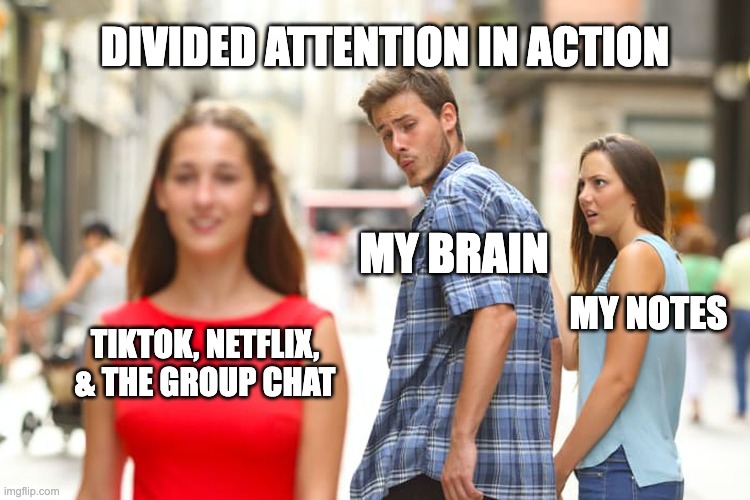By Navada Roberts
Imagine, you’re getting prepared to study for your next exam. You have your textbook open, your notes are ready, but you’re watching a TikTok on your phone. Or maybe you have a Netflix show on in the background for some “background noise”. Does this scenario sound a little familiar?
It may feel like you’re being productive because you’re multitasking multiple things at the same time, but in reality, cognitive psychology says otherwise. You’re not actually multitasking; you’re performing something called divided attention and it might be the reason why your study sessions aren’t as useful as you expected them to be. Don’t worry though, in this post I will discuss what you can do to balance your study and TikTok time.
What is Divided Attention?
Divided attention occurs when you try to focus on more than one task at a time. It splits all your mental energy between multiple tasks, unlike focused attention, where all your mental energy goes to one task. Your brain isn’t designed to completely process multiple tasks at once. Instead, it switches between the tasks, resulting in something called the switching cost. The switching cost is when you lose time, make more errors, and overall remember less information [1]. Research shows that even small distractions, like your phone buzzing or music playing in the background, can affect how you store information in your memory [2]. This is true when it comes to studying, because the more divided your attention is, the harder it is to understand and remember the information you’re learning. So next time you think that multitasking will save time, remember that it’s most likely the opposite.

